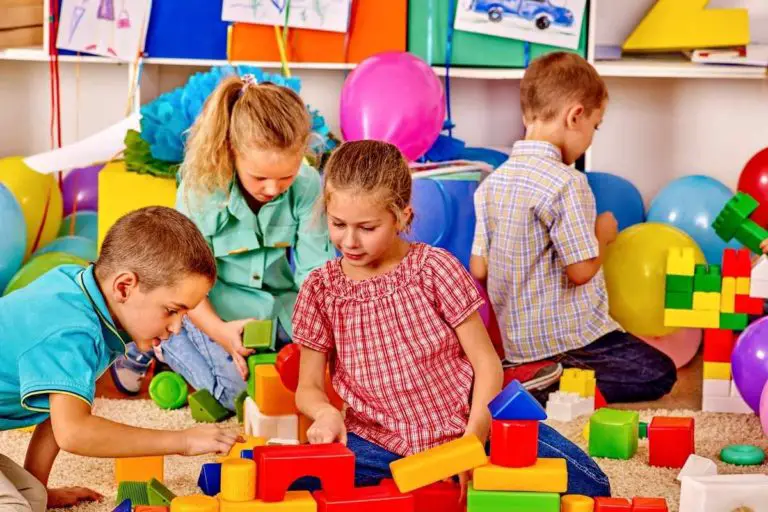Best Puzzles For 3-Year-Olds?
Best Puzzles For 3-Year-Olds?
If you’re looking for the best puzzles for 3-year-olds, you’ve come to the right place. We’ve got a great selection of puzzles that are perfect for little ones. Whether they’re just starting out or they’re already experts, we’ve got the perfect puzzle for them.
Puzzles are the perfect activity for three-year-olds! Puzzles help your child develop a wide range of skills, including problem-solving, logical thinking, focus, and following directions. Give your preschooler some time to enjoy these puzzles every day for an activity both you and your child will love.
How many puzzle pieces should a 3-year-old have?
The answer to this question depends on the specific puzzle. Generally, a 3-year-old should be able to complete a puzzle with between 10 and 20 pieces.
However, some puzzles may have more or fewer pieces, so it is always best to check the manufacturer’s recommendations before purchasing a puzzle for a 3-year-old.
What size puzzle is good for a 3-year-old?
A 3-year-old would benefit from a puzzle with large pieces that are easy to grip. Look for a puzzle with bright colors and interesting patterns. It should have about 12 pieces.
A good puzzle for a 3-year-old is a 14-piece puzzle. This can help them learn how to put together larger, more complex puzzles. Puzzles with easy-to-hold puzzle pieces are also recommended, as they can otherwise be difficult to grasp properly for smaller hands and fingers.
How do I teach my 3-year-old to do puzzles?
To teach a three-year-old to do puzzles, first introduce them to simple puzzles with large pieces. As they get better at those, gradually introduce more difficult puzzles with smaller pieces. Explain to them how the pieces fit together and encourage them to keep trying if they get frustrated. Finally, praise them when they complete a puzzle!
What does it mean if your child is good at puzzles?
If your child is good at puzzles, it means they are good at problem-solving and critical thinking. They are able to see the big picture and figure out how the pieces fit together.
Puzzles are a great tool to learn important skills and help with problem-solving. It is also a fun way for children to develop motor skills,
such as grasping,
- cutting
- Handing
- Learning
Puzzles are not necessarily an indicator of being more intelligent than other children.
What puzzles are good for 3-year-olds?
Puzzles are good for 3-year-olds because they help them develop problem-solving skills, hand-eye coordination, and fine motor skills.
Puzzles are a fun activity for 3-year-olds to do together with their family. Puzzles help develop your child’s fine motor skills, visual perception, and problem-solving skills. Puzzles are also a great way to interact with your child through play
If he or she is still in infancy, then there are plenty of other toys that will help them develop their senses like rattles and baby-safe mirrors. Toys that encourage fine motor skills and early literacy are always great choices, too!
Should a 3-year-old be able to do a puzzle?
A three-year-old should be able to do a puzzle if they are interested in puzzles and have had some previous exposure to them. If a three-year-old has never seen or worked with a puzzle before, it may be too challenging for them.
There is no specific age that children should be able to do a puzzle, but most children will start to be more independent with a puzzle at around 3 years. A 3-year-old who is comfortable with puzzles and games may be ready for one of our iconic wooden puzzles.
what age should a toddler be able to do a puzzle?
There is no definitive answer to this question as every toddler develops at their own pace. However, most toddlers will be able to do a puzzle by the time they are 18 months old.
Every child is different when it comes to doing puzzles. But how do you know if your toddler is ready to do a puzzle? Some signs that your child might be ready to solve a puzzle are A child who has learned the names of objects, knows at least 5 letters of the alphabet, can recognize numbers and has good fine motor skills.
What does being good at puzzles mean?
Being good at puzzles means that a person is good at solving problems. This can be helpful in many different areas of life, such as work, school, and personal relationships. A person who is good at puzzles is usually good at thinking creatively and outside the box. This can be a valuable skill in many different situations.
What skills do puzzles teach children?
Puzzles help children develop important skills, such as spatial awareness, problem-solving and critical thinking.
Puzzles are a great way for children to learn new skills. They can learn how to problem solve, how to think logically, and how to follow instructions. Puzzles can also help children improve their fine motor skills and their hand-eye coordination.
What are the benefits of puzzles?
Puzzles can have many benefits for both children and adults. They can help with problem-solving skills, memory, logic, and concentration. Puzzles can also be a fun and challenging way to spend some free time.
Puzzles are fun, educational, a great way to pass time, and can help with problem-solving. Puzzles can sharpen attention spans, develop fine motor skills, improve problem-solving abilities and enhance critical thinking skills.
Conclusion
In conclusion, the best puzzles for 3-year-olds are those that are both challenging and fun. They should be able to engage the child’s attention and provide a sense of accomplishment when they are completed. If you are looking for a gift for a child or adult in your life, a puzzle can be a great option.


